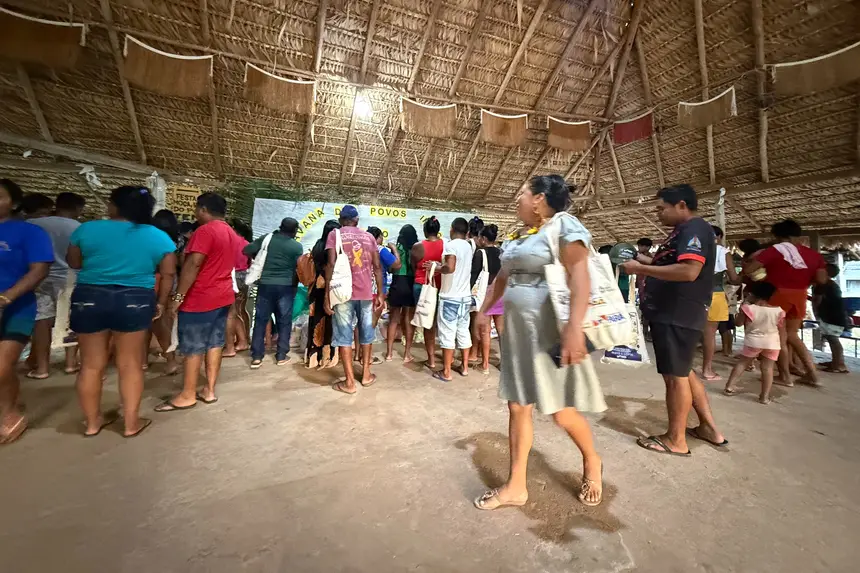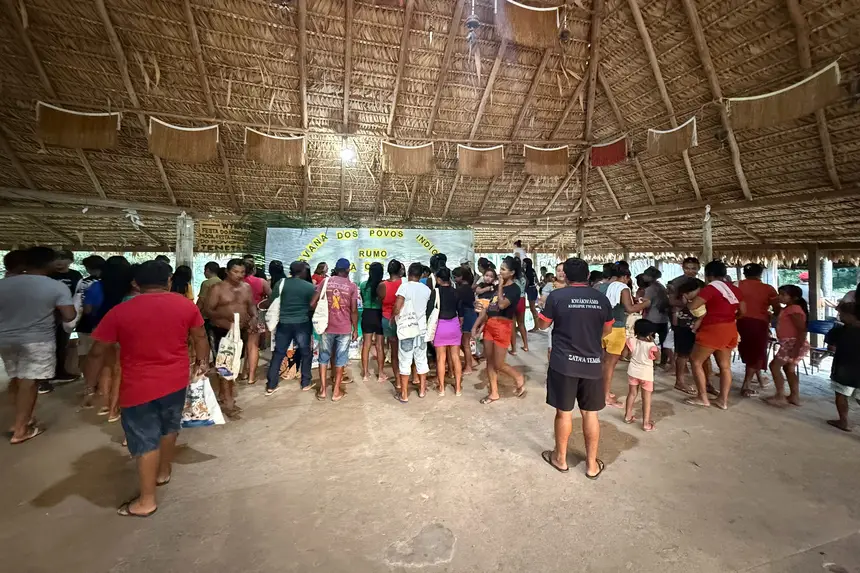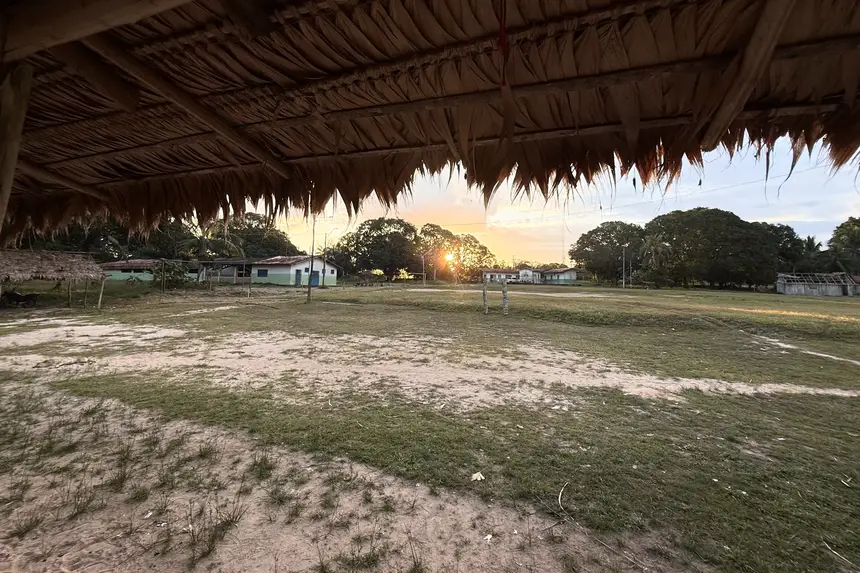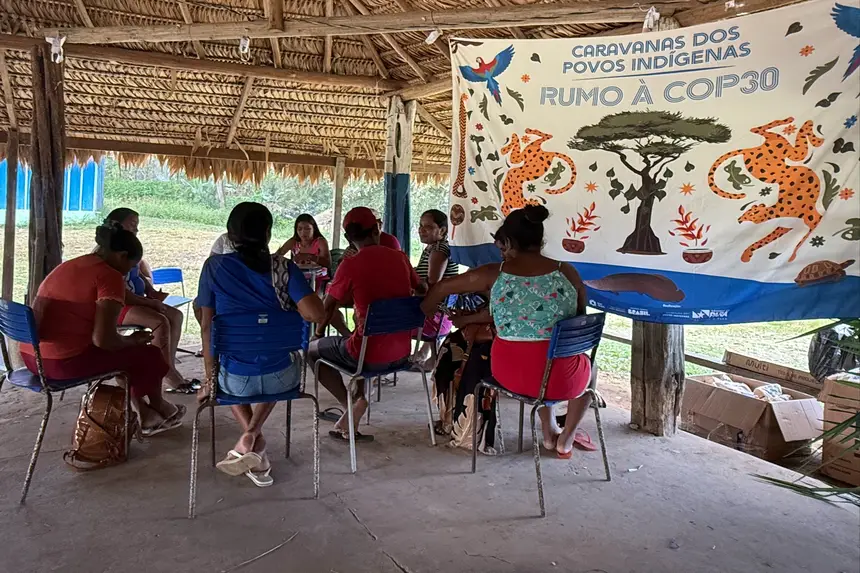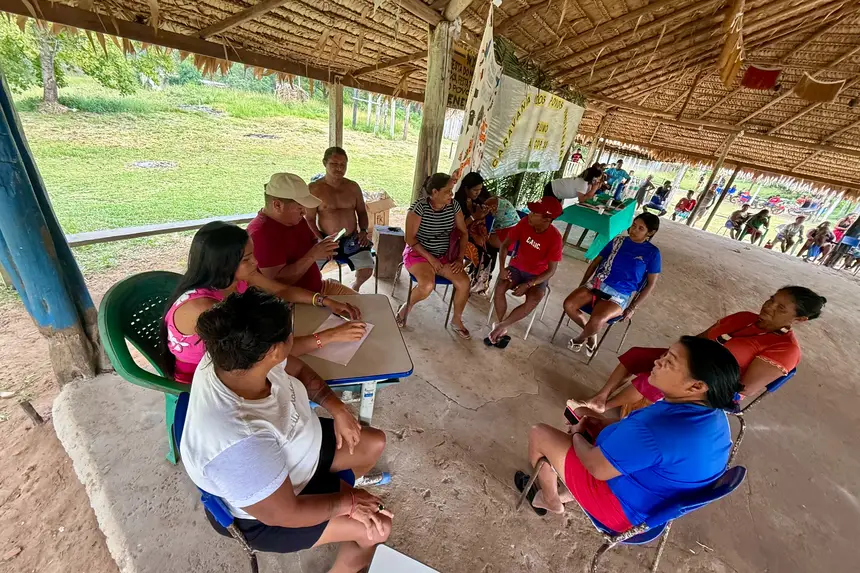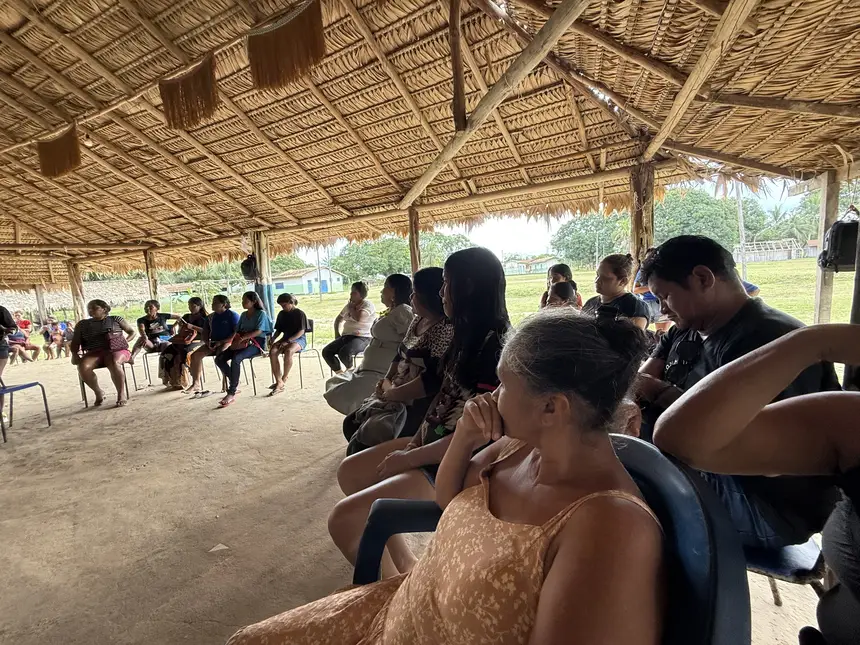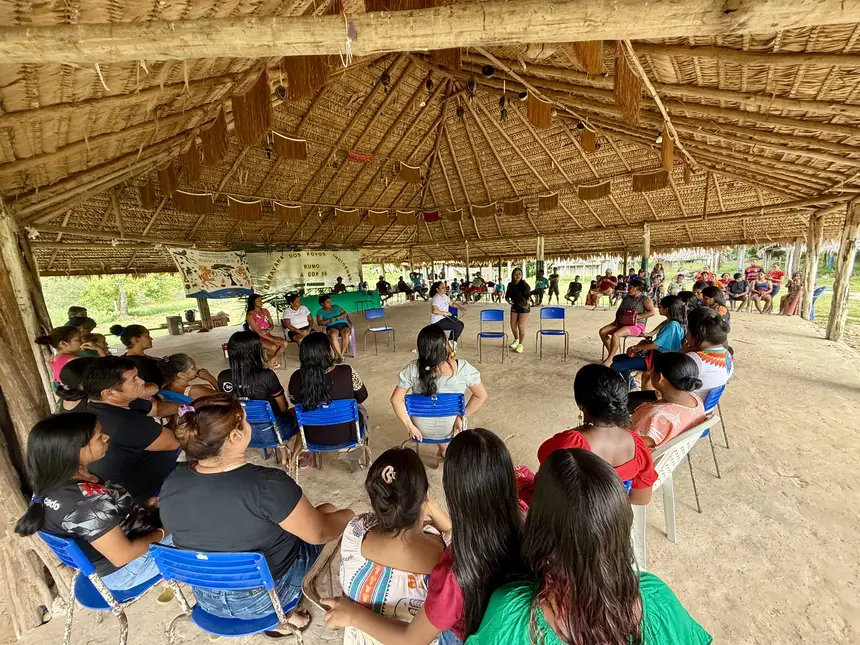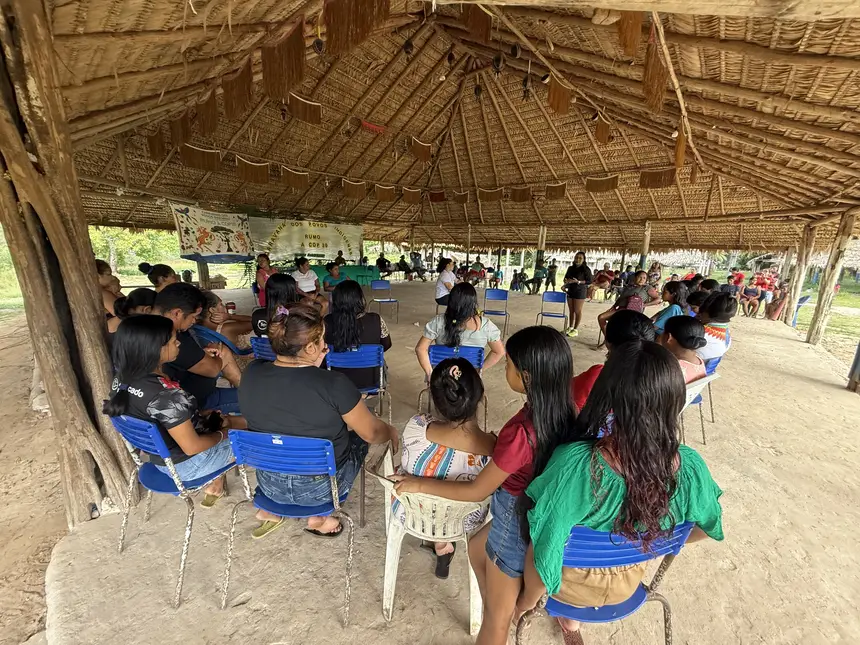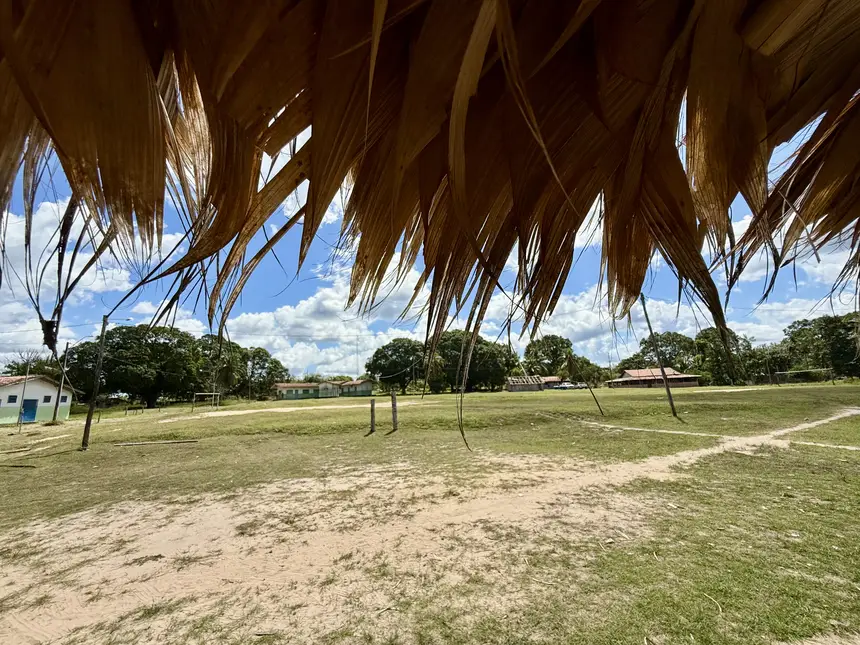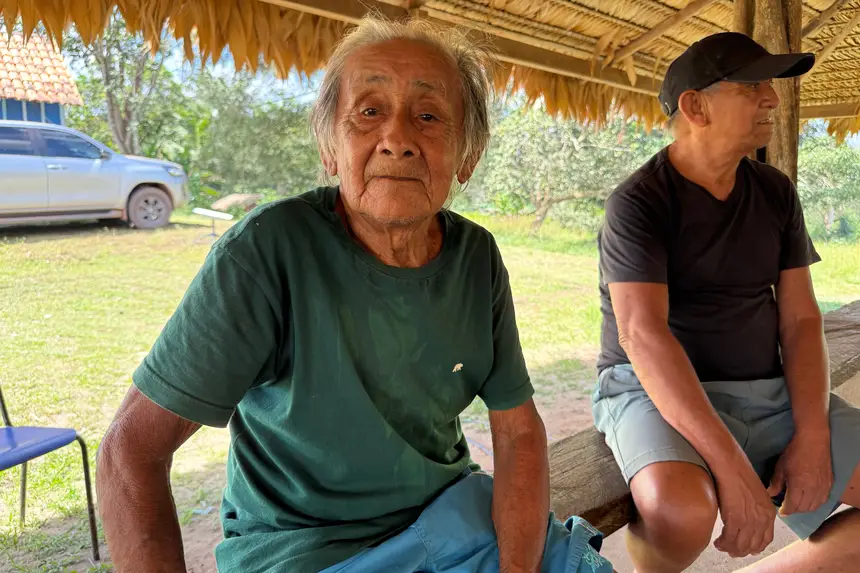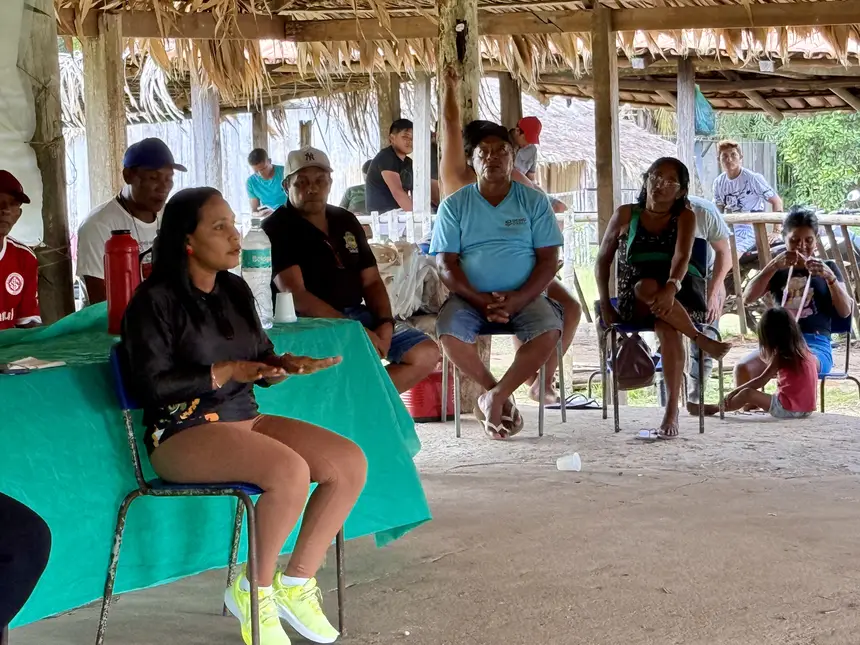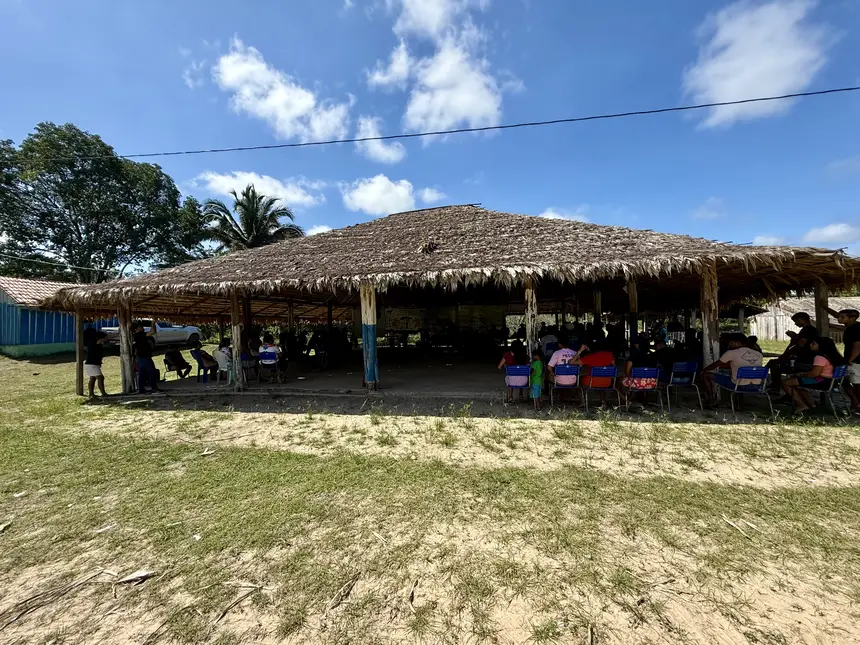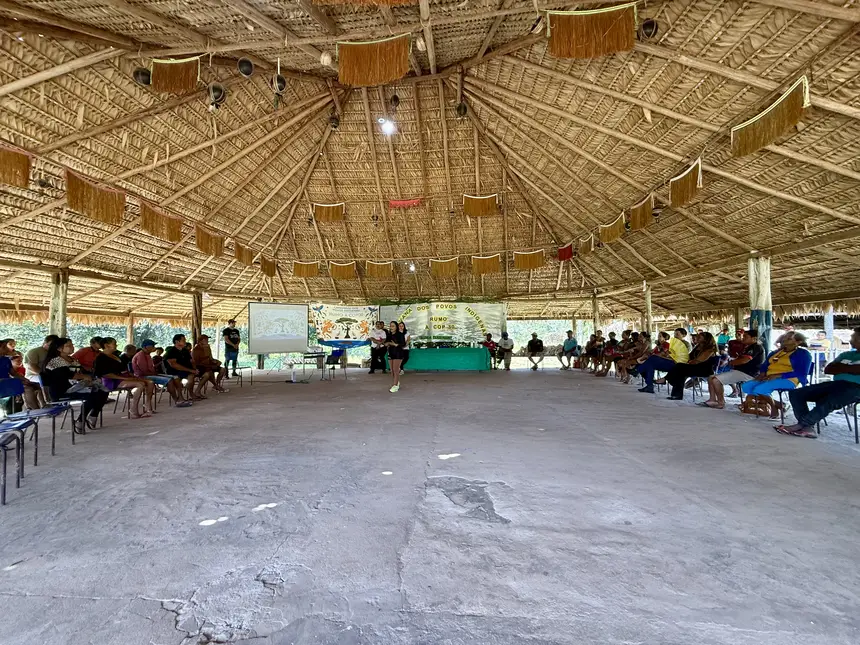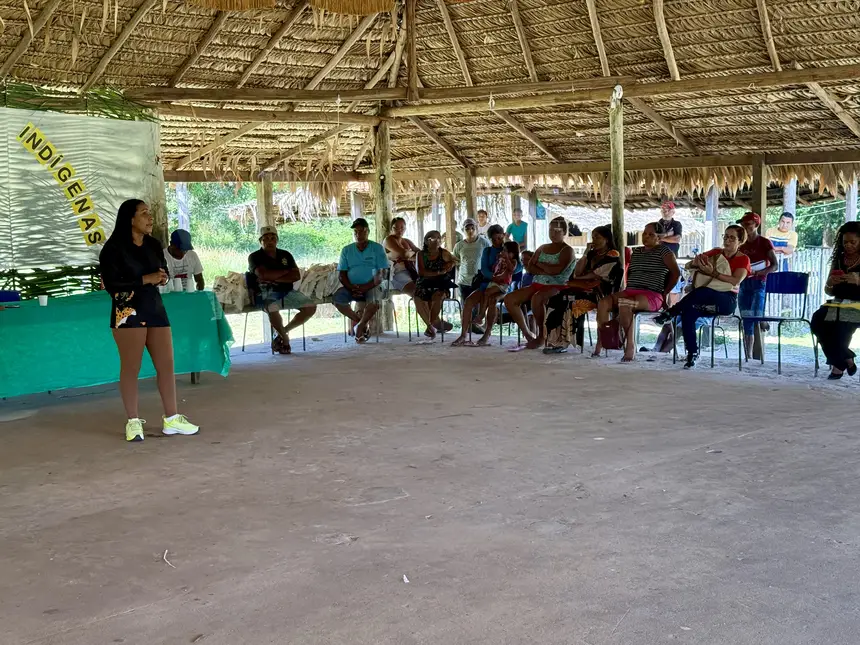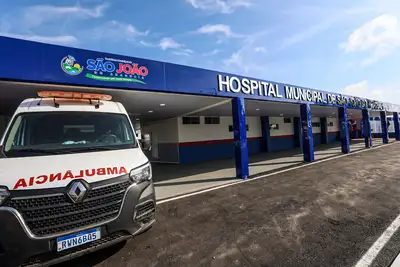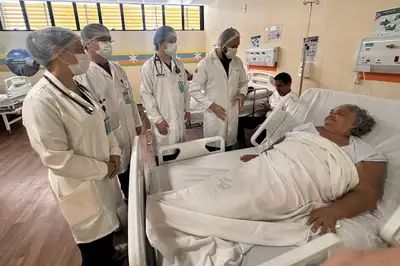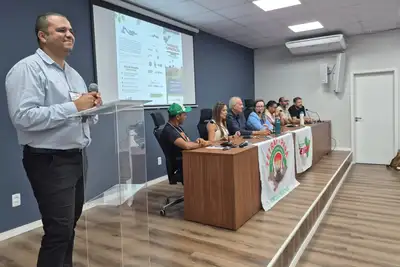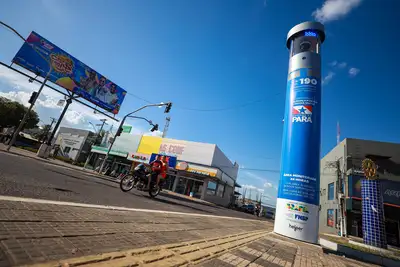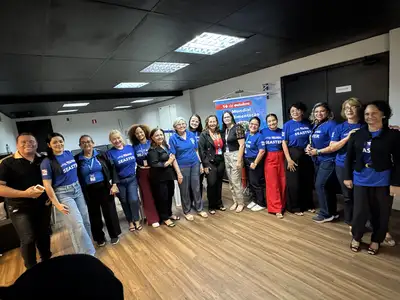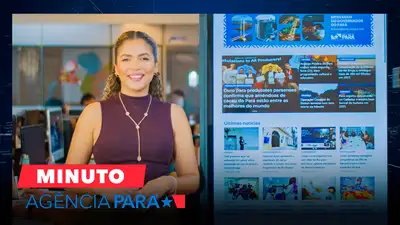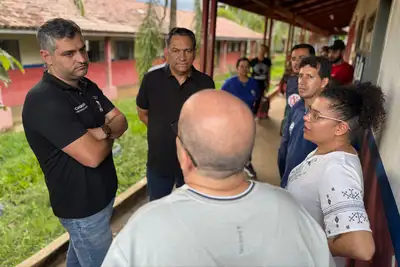Towards COP 30, Indigenous Peoples Caravan Arrives in Tembé Territory
Mobilization led by the Government of Pará, through Sepi, gathers indigenous leaders in the Teko Haw village in a historic preparation for the world climate conference in Belém
With songs and dialogues, the Indigenous Peoples Caravan heading to COP 30 (world conference on climate change) visited the Teko Haw village, traditional territory of the Tembé People, in the Indigenous Land Alto Rio Guamá, in Paragominas, southeastern Pará. The action is led by the State Secretariat for Indigenous Peoples (Sepi), and marks a new stage in the active listening process in the territories. This time, the Caravan went to the home of the guardians of the forest, protagonists in the defense of biodiversity.
During the meeting, Sepi promoted discussion circles, presentations, and knowledge exchanges with leaders, youth, and elders from the village, addressing topics such as climate change, territorial rights, and indigenous protagonism in the construction of environmental policies that will be debated at COP 30.
“Being in the Indigenous Land Alto Rio Guamá, with my Tembé People, has a profound meaning for me, as an indigenous woman and as a state secretary. This Caravan is a historic moment, where we unite our voices to ensure that the Tembé People and all indigenous peoples of Pará are prepared and represented at COP 30. Our territory is a symbol of resistance and care for the forest, and it is with this spirit that we want to arrive at the climate conference: strengthened, organized, and ready to occupy the place that is rightfully ours,” said Puyr Tembé, State Secretary for Indigenous Peoples.
The importance of listening and direct dialogue with the community was highlighted by local leaders. Valsanta Tembé, a Teko Haw leader, said that, “for us, it was very important to participate and dialogue with our secretary and her team. We had the opportunity to bring our proposals for COP 30, proposals to improve our life within the village, improve our work, and build partnerships with the competent bodies. We also want the attention of other countries focused on our Indigenous Land Alto Rio Guamá, in defense of the forest. We observe that climate change is worsening every year. And we depend on the forest, we depend on the conserved biodiversity. Therefore, we count on the support of people, so that they also start to value the importance of nature.”
Resistance - The Indigenous Land Alto Rio Guamá is one of the largest and oldest homologated territories in Pará, covering about 279 thousand hectares, encompassing the municipalities of Paragominas, Nova Esperança do Piriá, Capitão Poço, and Santa Luzia do Pará. Currently, more than 2,500 Tembé indigenous people live in the TI, distributed across 42 villages.
After decades of invasions, the reintegration of possession was completed in 2023, through an operation that mobilized federal bodies and the Government of Pará. Since then, various actions have been implemented to restore and protect the region, such as training indigenous brigades and specific education policies with the protagonism of the peoples who inhabit the region.
“The COP 30 Caravan is here in the Teko Haw village making this essential debate for our preparation towards the conference, which will take place in Belém in November this year. We, the Tembé People, are naturally guardians of the forest. This is part of our culture, our identity, and it is something we prove every day. The Indigenous Land Alto Rio Guamá went through a process of de-intrusion after years of struggle, and now we are working on the recovery of deforested areas. Everyone knows that deforestation contributes to global warming. What we want is to do the opposite: recover these degraded areas. And for that, we need support in this very important process not only for the Tembé but for all humanity,” said Valdeci Tembé, a leader in the Cajueiro village.
In addition to the more experienced leaders, young people and cultural representatives participated. For Sérgio Tembé, an indigenous leader, the Caravan promoted the necessary learning for the peoples to be part of the climate defense with COP 30.
“I am a leader of the Teko Haw village and also of our culture. And the importance of the Caravan here in our village is that it brought information that we really needed. This Caravan is very important, which was brought here by our Sepi. Now, we are prepared for COP 30,” said Sérgio Tembé.
Prior consultation - The Tembé People is a reference in the fight for indigenous rights in Pará, and was one of the first to establish the Protocol for Free, Prior, and Informed Consultation and Consent, which guarantees autonomy and direct participation in decisions that impact the way of life of indigenous peoples.
The presence of the Caravan in the Teko Haw village reinforces this protagonism and updates the climate debate, with the direct listening of indigenous communities. “Bringing this discussion to the villages is to recognize the centrality of the forest peoples in building solutions for the future of the planet. COP 30 will be held in the Amazon, and there is no Amazon without indigenous peoples,” highlighted Secretary Puyr Tembé.
The Indigenous Peoples Caravan heading to COP 30 will travel through eight ethnoregions of Pará. The goal is to ensure that the indigenous peoples are not only present at the United Nations (UN) conference but prepared, strengthened, and with proposals built collectively from the reality of their territories.



